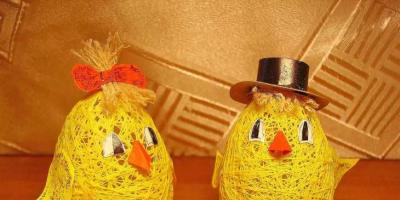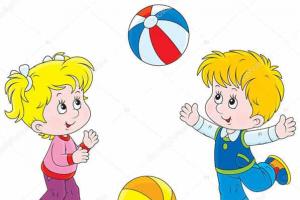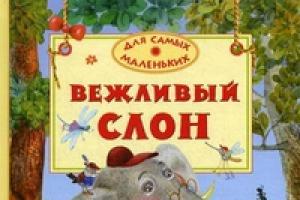Today's note about the daily routine: “My day in German.” Here you will find excellent instructions, consisting of 12 points, each of which contains phrases necessary for composing. You can create your own story about your typical day, choosing what suits you.
The following phrases are suitable for schoolchildren, students, working people and even mothers.
What items does your typical day consist of?
1. Rise
Um halb sieben weckt mich meine Mutter.— At half past six my mother wakes me up.
Der Wecker klingelt um…- The alarm clock is ringing...
Jeden Abend stelle ich den Wecker, aber ich höre ihn nicht.— Every evening I set the alarm, but I don’t hear it.
Ich bin ein Langschläfer und will immer noch einige Minuten schlafen. “I’m sleepy and I always want to sleep a few more minutes.”
Ich stehe um halb neun auf.— I get up at half past eight.
2. Washing.
Im Badezimmer wasche ich mein Gesicht, käme meine Haare und putze meine Zähne. — In the bathroom I wash my face, comb my hair and brush my teeth.
Ich putze mir die Zäh ne. - I brush my teeth.
Ich dusche mich kalt. — I take a cold shower.
3. Changing clothes.
Nach dem Zähneputzen ziehe ich mich an.— After brushing my teeth, I get dressed.
Ich stehe vor dem Kleiderschrank und überlege, was ich anziehen soll.— I’m standing at the closet and thinking about what to wear.
Dann ziehe ich mich an und kämme mich vor dem Spiegel.— Then I get dressed and comb my hair in front of the mirror.
Ich ziehe mich an und schminke mich.— I get dressed and put on my makeup.
4. Breakfast.
Meine Mutter ruft mich zum Frühstück. — Mom calls me to have breakfast.
Ich mache das Frühstück. — I'm making breakfast.
Ich trinke nur ein Glas Kaffee zum Frühstück. — I only drink a cup of coffee for breakfast.
Zum Frühstück esse ich eine Schüssel Haferbrei.— For breakfast I eat a bowl of oatmeal.
Um acht setze ich mich an den Tisch und frühstücke.— At eight I sit down at the table and have breakfast.
Gewöhnlich esse ich belegte Brötchen und trinke Tee.— I usually eat sandwiches and drink tea.
Zum Frühstück esse ich zwei Schnitten Brot mit Marmelade.— For breakfast I eat two pieces of bread with jam.
5. The way to school or work.
Ich setze mich aufs Fahrrad und treffe mich mit meiner Freundin um acht.— I get on my bike and meet my friends at eight o'clock.
Ich fahre zur Arbeit mit dem Zug.— I go to work by train.
Mein Büro befindet sich in der Nähe, deswegen gehe ich immer zu Fuß.— My office is nearby and I always walk to it.
How do you like such a capacious sentence that already has everything in it? previous points:
Ich stehe morgens gegen 7 Uhr auf, frühstücke nur wenig und fahre dann ins Büro, wo ich in der Regel kurz nach 8 Uhr ankomme.— I get up around 7 o’clock, have a little breakfast and go to the office, where I usually arrive a little after eight o’clock.
6. Working day
Um neun Uhr muss ich auf der Arbeit sein. — At 9 am I must (must) be at work.
Um acht Uhr muss ich in der Uni/in der Schule sein. — It’s eight in the morning, I have to be at the university/at school.
Ich mache um 18:30 Feierabend.— My working day ends at 18:30.
Ich arbeite von 9 bis 17 Uhr jeden Tag.— Every day I work from 9 to 17 o’clock.
If you want to supplement this paragraph with other phrases, take a look: there you will find not only a list of professions, but also a section on working hours and schedule that is suitable for this paragraph.
7.Lunch
Ich esse zu Mittag um halb zwe i. — I have lunch at half past one.
Zu Hause esse ich zu Mittag und ruhe mich ein wenig aus. — At home I have lunch and rest a little.
Dann essen wir in der Kantine. Wir essen gern Salat und Fleisch.— Then we eat in the dining room. We eat salad and meat.
8. After school/after work
Erst muss ich noch die Hausaufgaben erledigen.— First I have to do my homework.
Ich helfe meiner Mutter im Haushalt: wasche das Geschirr ab und kaufe ein. - I help my mother with housework: washing dishes and doing shopping.
Ich putze die Wohnung und wasche die Wäsche.— I clean the apartment and wash the clothes.
Nach der Arbeit gehe ich spazieren.— After work I go for a walk.
9. Additional activities, hobbies.
Ich treffe mich mit meinen Freunden.— I'm meeting my friends.
Manchmal gehe ich ins Kino oder ins Theater. — Sometimes I go to the cinema or theater.
Zweimal pro Woche gehe ich nach der Arbeit ins Fitnessstudio.— Twice a week after work I go to the fitness center.
Einmal in der Woche gehe ich in die Stadt und kaufe ein.— Once a week I go to the city for shopping.
There is something about hobbies - take a look to add additional phrases to this paragraph.
10. Dinner.
Um halb sieben gibt es bei uns schon Abendessen.— At half past seven we already have dinner.
Um sieben Uhr abends bereite ich das Abendessen vor und dann esse ich mit meiner Familie zu Abend.— At 7 o'clock I cook dinner and then have dinner with my family.
If you want to describe in more detail what exactly you prefer to eat for breakfast, lunch or dinner, take a look or in German.
11. Evening
Um acht Uhr abends sehe ich normalerweise die Nachrichten im Fernsehen.— At eight in the evening I usually watch the news on TV.
Ich telefoniere jeden Abend mit meiner Mutter. — Every evening I talk on the phone with my mother.
Oft spiele ich mit meinem Vater Schach. — I often play chess with my dad.
Abends sehe ich lieber fern, als zu lesen.— In the evenings I like watching TV more than reading.
12. Sleep.
Um neun gehe ich ins Bett und lese noch bis halb zehn.— At nine I go to bed and read a book until half past nine.
Danach putze ich mir die Zähne, ziehe mir den Schlafanzug an und um halb zehn gehe ich schlafen .“Then I brush my teeth, put on my pajamas and go to bed at nine-thirty.”
What about Sundays?
Sonntag ist immer der Tag, wo ich aufräume und putze.— Sunday is the day when I do cleaning.
Ein Tag wie jeder andere.- The same day as all the others.
Ich gehe oft sonntags auch arbeiten.— I often work on Sundays.
Am Sonntag kann ich lange ausschlafen.— On Sunday I can sleep longer.
And a few more expressions that you can insert into your story:
Früh mit den Hühnern zu Bette und auf mit dem Hahn um die Wette. — Get up with the roosters (very early), go to bed with the hens (early).
Ich habe alle Hände voll zu tun.- I have a lot to do.
Die Zeit vergeht wie im Fluge.- Time flies very quickly.
Es macht mir Spaß.- It gives me pleasure.
Das finde ich blöd.- I find this stupid.
Das macht frisch.- It's refreshing.
My day in German: two small examples
Schoolchildren's Day:
Mein Wecker geht um 6.45. Ich bleibe noch zehn Minuten im Bett. Dann frühstücke ich mich zusammen mit meiner Schwester und meinem Vater.Wenn ich fertig bin, ziehe ich mich an und gehe in die Schule. Wenn die Schule aus ist, gehe ich nach Hause. Ich esse zu Mittag um 14 Uhr. Dann mache ich meine Hausaufgaben und sehe ich fern. Abends treffe ich meine Freunde und gehe Fahrrad fahren. Zu Hause dusche ich und esse. Um 22 Uhr bin ich im Bett.
My alarm clock rings at 6:45. I stay in bed for another 10 minutes. Then I have breakfast with my sister and dad. When I finish, I get dressed and go to school. When school ends, I go home. I have lunch at 14 o'clock. Then I do my homework and watch TV. In the evenings I meet my friends and go cycling. At home I take a shower and eat. At 10 o'clock I go to bed.
A day in the life of a working mother:
Morgens um Viertel nach 6 klingelt der Wecker, ich stehe auf. Mein Mann rasiert sich schon. Um 7 frühstücken wir. Die Kinder müssen sich beeilen. Die Schule fängt um 8 Uhr an. Am Vormittag arbeite ich als Psychologin. Um halb eins mache ich schnell ein kleines Mittagessen für die Kinder und mich. Am Nachmittag bringe ich die Kinder oft zum Sport. Endlich Feierabend! Am Abend sitzen wir meistens zusammen und essen.
The alarm clock rings every morning at 6:15 and I get up. My husband is already shaving. At 7 o'clock we have breakfast. The children must hurry up. School starts at 8 o'clock. Before lunch I work as a psychologist. At half past twelve I quickly prepare lunch for the children and myself. After lunch I mostly take the kids to sports. Finally at home! In the evening we mostly sit together and eat.
Questions on the topic: “My day in German”
If you want to ask about your interlocutor’s daily routine, you can ask the following questions:
Wie ist Ihr Tagesablauf?— What is your daily routine?
Wann stehen Sie gewöhnlich auf? Und am Sonntag? — When do you usually wake up? And on Sundays?
Wann frühstücken Sie? Wann essen Sie zu Mittag und zu Abend?- When do you have breakfast? When do you have lunch and dinner?
Wie viel Stunden macht Ihr Arbeitstag?— How many hours do you spend at work?
Wann ist Feierabend?— When does the working day end?
Was machen Sie am Abend? — What do you do in evenings?
Wann gehen Sie gewöhnlich schlafen?— When do you usually go to bed?
Was tun Sie am Montag, Dienstag usw.?— What do you do on Mondays, Tuesdays, etc.?
Wie unterscheiden sich die einzelnen Wochentage? — How are the days of the week different?
Was machen Sie am Wochenende? — What do you do on weekends?
Once again I welcome lovers of foreign languages, in particular German. It’s been a long time since there have been German collections and I decided to please, and maybe upset some readers website. Basic German vocabulary- This is probably the most important aspect for all beginning students.
At the moment I am trying to break down all the important German vocabulary in sections by topic, because I think this method of studying is more productive and effective. Honestly, I don’t know which share of site visitors is greater: or, but if you think logically, it’s probably English :), after all, this is not such an educational portal for world languages. This does not prevent me from creating dictionaries, because German is exactly the language that I still need to study for a long time and productively.
Today I invite you to familiarize yourself with names of the days of the week in German plus other important words from this topic. As always, you will receive different formats of dictionaries - this is both in a regular document and in the format for Lingvo Tutor. The correct article before a word is also an important point in learning German, but here you don’t have to worry, because in German there is always an article before any day of the week DER.
I have also prepared other similar vocabulary (all in one dictionary), which is quite often missed when studying the days of the week. Words like gestern, heute, morgen, übermorgen should always be in your memory. Some will say that these are elementary words, but sorry, not everything is here "advanced" German speakers. I wish you good luck in your studies and patience in everything.
Learned words “days of the week” in German with translation:
der Montag- Monday
der Dienstag- Tuesday
der Mittwoch- Wednesday
der Donnerstag- Thursday
der Freitag- Friday
der Samstag/der Sonnabend- Saturday
der Sontag- Sunday
das Jahr- year
der Monat- month
die Woche- a week
der Tag- day
die Wochentage- days of the week
das Wochenende- weekend
der Feiertag- day off due to a holiday
vorgestern- day before yesterday
gestern- yesterday
heute- Today
morgen- Tomorrow
übermorgen- day after tomorrow
In this lesson we will look at an important topic related to the year in German. First of all, let's get acquainted with the basic words:
das Jahr- year
der Monat- month
die Woche- a week
der Tag- day
As you can see, the gender of German words in almost every case coincided with Russian, except for the word “year”. It won't be difficult to remember.
Seasons
Names of all seasons (die Jahreszeiten)- male:
der Winter- winter
der Frühling- spring
der Sommer- summer
der Herbst- autumn
If you want to say that some event happened in spring, winter, summer or autumn, you will need a preposition in, which merges with the article into a new preposition im, for example: im Herbst.
Months
Months in German are also masculine:
der Januar- January
der February- February
der März- March
der April- April
der Mai- May
der Juni- June
der Juli- July
der August— August
in September- September
der Oktober- October
in November- november
der December- December
The same thing happens with months as with seasons: if it is necessary to answer the question “when?”, a preposition is used im, for example: im Oktober. The word does not receive any additional endings.
Days of the week
The names of the days of the week have some peculiarities: for example, there are two words to designate Saturday, one of them (Sonnabend) used in northern Germany, other (Samstag)- on South. And “Wednesday” is the only day of the week that does not have the word “day” in its name:
der Montag Monday
der Dienstag Tuesday
der Mittwoch Wednesday
der Donnerstag Thursday
der Freitag Friday
der Sonnabend/ der Samstag Saturday
der Sonntag Sunday
das Wochenende weekend
Remember: The names of all days of the week are pronounced with the emphasis on the first syllable. And when answering the question “When?” (Wann?) with the day of the week you'll need an excuse am: am Montag.
If you want to talk about an action that is repeated on certain days, a preposition is not needed at all, and the ending is added to the name of the week "s". For example: Sonntags gehen wir ins Kino. Wherein sonntags is an adverb, and in the middle of a sentence it will be written with a small letter.
When indicating a gap, use prepositions von And bis. In this case, articles are not needed: Ich arbeite von Montag bis Freitag.
Times of Day
The names of the time of day are also almost all masculine:
der Morgen- morning
der Mittag- day; noon
der Abend- evening
But: die Nacht- night
The same principle applies to the names of times of day as with days of the week - use a preposition am:
am Morgen
am Mittag
BUT: in der Nacht
Another difference is the use of a preposition with the words noon and midnight:
am Mittag- at noon
um Mitternacht- at midnight
When indicating periodicity, also use the ending "s":
mittags- during the day
abends- in the evening, in the evenings
nachts- at night, at night
Also pay attention to the following expressions:
Anfang August- at the beginning of August
Mitte Juni- in mid-June
Ende Januar- in the end of January
Anfang, Mitte, Ende des Jahres- at the beginning, in the middle, at the end of the year
Mitte Sommer- in the middle of summer
Important! To indicate time, words such as:
heute- Today
gestern- yesterday
morgen- Tomorrow
übermorgen- day after tomorrow
These words will help tell you "tonight" or "yesterday morning": heute Morgen, gestern Abend. And to say "tomorrow morning", use the phrase morgen früh.
Do you remember everything? Check it out with the exercises!
Lesson assignments
Exercise 1. Use the correct preposition.
1. … Sommer 2. … der Nacht 3. … Morgen 4. … Mitternacht 5. … April 6. … Winter 7. … Samstag 8. … Dienstag …. Sonntag 9. … September 10. … Mittag
Exercise 2. Translate into German.
1. Last night we watched TV. 2. She works on Mondays, Thursdays and Fridays. 3. In the spring we will go to Germany. 4. The day after tomorrow I will buy a car. 5. On Wednesday I'm going to the theater. 6. Call (anrufen) me tomorrow morning. 7. At the end of December he will take the exam (eine Prüfung bestehen). 8. Her birthday is in January. 9. On weekends he often cleans (aufräumen). 10. At the beginning of the year we have a vacation (Urlaub).
Exercise 1.
1. im 2. in 3. am 4. um 5. im 6. im 7. am 8. von … bis 9. im 10. am
Exercise 2.
1. Gestern sahen wir fern. 2. Sie arbeitet montags, donnerstags und freitags. 3. Im Frühling fahren wir nach Deutschland. 4. Übermorgen kaufe ich ein Auto. 5. Am Mittwoch gehe ich ins Theater. 6. Rufe mich morgen früh an. 7. Ende Dezember besteht sie eine Prüfung. 8. Im Januar hat sie den Geburtstag. 9. Am Wochenende räumt er auf. 10. Anfang des Jahres haben wir Urlaub.
The seven-day week owes its origin to Ancient Babylon, then the new periodicity spread among the Romans, Jews and Greeks and later reached Western Europe.
The days of the week in European languages are associated with the names of the planets, which are named after Roman gods. In this regard, the days of the week in European languages have a common etymology. However, the origin of the days of the week in German has certain differences. The Germanic tribes glorified primarily the German-Scandinavian gods, corresponding in their role to the Roman gods, this fact was manifested in the names of the days of the week.
Montag - "day of the moon" refers to the moon goddess.

Dienstag - this day is associated with the name of the German-Scandinavian sky god Ziu (Tiu, Tyr, Tyr), is an analogue of the god of war Mars. In Germanic mythology, Ziu was considered the god of military valor.

Mittwoch (Wodanstag) - the day of the week is named after the German-Scandinavian god Wodan (Wodan, Woden, Wotan. Woden is a god who became famous for the invention of the runic alphabet, in connection with this a parallel can be drawn with the god Mercury.

Donnerstag - this day of the week owes its name to the German-Scandinavian god of thunder (weather) Donar (Donnar), who is identified with Jupiter.

Freitag - the day of the week got its name from the German-Scandinavian goddess of love and fertility Frija (Freya, Frigga), which corresponds to the Roman goddess Venus.

Samstag - this day is not directly related to the name of the planet and deity, but comes from the Hebrew word Sabbat (Sabbath). But the concept of Sabbatai is based on the combination Stern Saturn (the star of Saturn).








